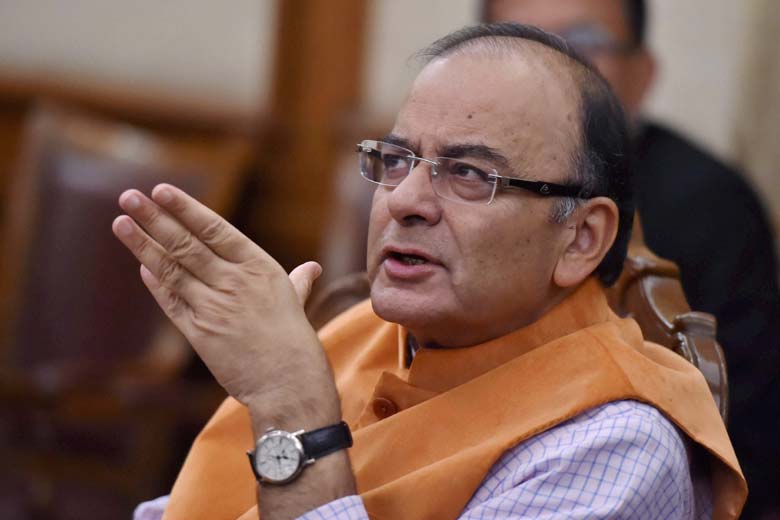On Friday night, Finance minister, Arun Jaitley announced five policy decisions to control widening Current Account Deficit (CAD) and rupee depreciation. The decision was taken following a meeting between PM Modi, finance minister Jaitley, RBI governor Urjit Patel and top officials from the ministry and RBI. Urjit Patel made a detailed presentation on domestic and external economic conditions in the meeting. The steps taken to improve macroeconomic conditions in the country are as following.
- Government reduced the maturity timing of overseas borrowings from three years to one year for manufacturing sector companies.
- The exposure limit of domestic entities to Foreign Portfolio Investors (FPI) will be removed.
- Mandatory hedging conditions for infrastructure loans will be reviewed.
- Removal of restrictions on Masala bonds (rupee-denominated overseas bonds)
- Tax exceptions on holding Masala bonds issues in this fiscal year.
The stock market and rupee responded positively on Friday hoping government intervention to improve the situation. Rupee was 34 paise on reaching a week high of 71.85 and Sen-sex reclaimed 38,000 mark. The ministry will also take measures to curb non-essential imports encourage exports. “To address the issue of expanding CAD, the government will take necessary steps to cut down non-essential imports and increase exports. The commodities of which imports will be cut down will be decided after consultations with concerned ministries and will be WTO-compliant,” said Jaitley. Commenting on what impact these measures would make, Economic Affairs Secretary S C Garg said, “It is difficult to give a specific number. I think it should have an impact of USD 8-10 billion.”
CAD of the country has widened in recent months due to surge in global crude oil prices which started rising in July due to anticipation of oil import ban on Iran. “External factors like policy decisions in the U.S. which have resulted in the outflow of dollars, global crude oil prices and a looming trade war have had an impact on India despite our strong fundamentals,” said Jaitley.
There was a section of economists and traders who were expecting some decisions on interest rate will be taken to curb the outflow of dollars and stop the depreciation of rupee. But since the government is taking small measures to control the situation and the finance ministry and RBI is working in tandem, policy decisions on interest rates are very unlikely. “Broadly, it is positive that no drastic measures have been announced. The rupee, post this, should move in line with global peers but this should end any under-performance of the rupee,” said Jayesh Mehta, treasurer at Bank of America-Merrill Lynch.
Markets were expecting a government intervention to improve the situation for long. However, government and RBI have let the markets to decide the value of Rupee. The philosophy behind this was that rupee is overvalued and policymakers should let it find its ‘natural value’. Even this decision would be ‘short term currency booster’ and in long run RBI would let rupee slide/appreciate to its natural value.
